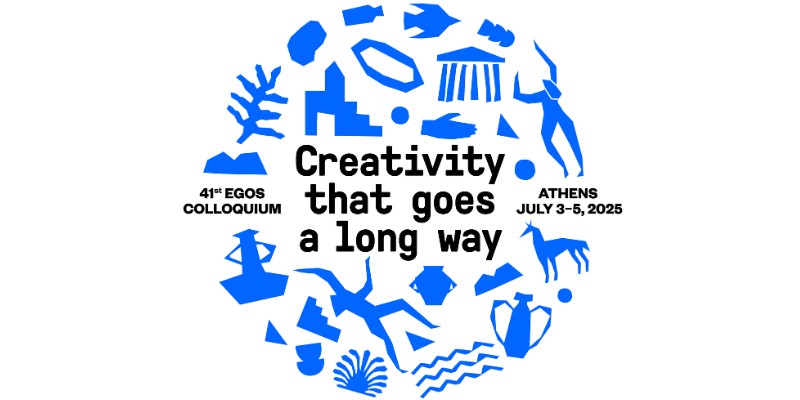Sub-theme 34: How Digital Technologies are (Re-)Creating Professions
Call for Papers
This sub-theme takes stock of and further advances the expanding scholarly conversations on the dynamics between digital
technology and professional services. We aim to deepen, explore, and integrate our knowledge about recent changes driven by
digital technologies and the implications for organizing professional services, both in terms of existing professions and
new ways of organizing expertise in society.
Professions are a distinct form of organizing expertise with
socially established boundaries and jurisdictions (Abbott, 1988), constituting an influential institution in modern society
(Suddaby & Viale, 2011). The potential disruption of professions by digital technologies that could substitute human expertise
has long been imagined. For example, Abbott (1988) speculated the race between humans and machines as an endless game of creativity
as early as the 1980s: “On the one hand, professional work is replaced by machine work. On the other, the machines enable
new forms of professional work and new expectations for professional services. Essentially, the race is between two forms
of creativity” (p. 184).
Today, renewed interest has arisen in the proliferation of digital technologies,
such as platforms, artificial intelligence and blockchain (Smets et al., 2017). Although technologies have certain limitations
(Pakarinen & Huising, 2023), they are rapidly substituting human professional work in many tasks, and the continuing expansion
of technologies capacity is enacting new modes of professionals’ organizing (Pemer & Werr, 2023). Emerging studies in
this field have reported significant changes in organizing both professional service firms (PSFs) and professional work. Studies
from various perspectives such as changes in business models, organizational structure, skill requirements, HR practices,
service and other innovations, professionals’ boundary work and identity work (e.g., Ahuja et al., 2019; Faulconbridge et
al., 2023; Goto, 2023) have highlighted important changes at multiple levels of organizing due to technological advances.
Importantly, these new, technology-enabled ways of organizing knowledge work and expertise may also lead to institutional
and societal rearrangements, yet our knowledge is limited and somewhat unorganized.
To contribute to developing
and integrating theories on the subject, we explore the shift in existing professional services at multiple levels (professions,
PSFs and individual professionals). The following questions are of interest to this sub-theme, but we welcome contributions
on the above themes from diverse perspectives, methods, and contexts.
How does the rise of new technologies maintain, change, or (re-)create professionals’ work?
How do professionals manage their professional identity with changing professional services?
How do new technologies affect professional careers?
How are professional practices built into technology?
What explains the diversity of responses to those technologies across individual professionals/PSFs/professions?
How do professionals maintain or innovate professional institutions?
To explore the broader implications beyond existing professions, this stream also considers emerging ways of organizing
knowledge work and expertise that have been enabled and/or made more relevant due to advances in technology. For instance,
new technologies can provide opportunities for the professionalization of new expertise linked with those technologies, exemplified
by the prominent case of data scientists (Waardenburg et al., 2022). However, new information technologies for sharing and
matching expertise shift the coordination and distribution of expertise, often bypassing the traditional professional arrangements,
observed in the rise of gig economy platforms and cloud-based organizations (Yao, 2020). Moreover, digital technologies have
enabled some professionals to establish new organizations that digitally transform their professional field (Kronblad &
Jensen, 2023). Importantly, the proliferation of generative AI has given rise to new opportunities for using technology in
creative ways that may enhance and/or change the ways in which professionals’ work, significantly.
Here,
we suggest indicative questions below, but welcome broader contributions with creative insights into how digital technologies
can expand our knowledge on professions.
What areas of expertise seek to professionalize in the digital age, and how?
How does the coordination and distribution of expertise in society change with developing technologies beyond professions?
How do digital technologies affect the entrepreneurial motivations and behaviours of professionals?
How do new forms of technology-enabled creativity influence professional service work?
References
- Abbott, A.D. (1988): The System of Professions: An Essay on the Division of Expert Labor. Chicago, IL: University of Chicago Press.
- Ahuja, S., Heizmann, H., & Clegg, S. (2019): “Emotions and identity work: Emotions as discursive resources in the constitution of junior professionals’ identities.” Human Relations, 72( 5), 988–1009.
- Faulconbridge, J., Sarwar, A., & Spring, M. (2023): “How professionals adapt to artificial intelligence: The role of intertwined boundary work.” Journal of Management Studies, https://doi.org/10.1111/joms.12936.
- Goto, M. (2023): “Anticipatory innovation of professional services: The case of auditing and artificial intelligence.” Research Policy, 52 (8), https://doi.org/10.1016/j.respol.2023.104828.
- Kronblad, C., & Jensen, S.H. (2023): “‘Being a professional is not the same as acting professionally’: How digital technologies have empowered the creation and enactment of a new professional identity in law.” Journal of Professions and Organization, 10 (2), 99–119.
- Pakarinen, P., & Huising, R. (2023): “Relational expertise: What machines can’t know.” Journal of Management Studies, https://doi.org/10.1111/joms.12915.
- Pemer, F., & Werr, A. (2023): “Defusing digital disruption through creative accumulation: Technology-induced innovation in professional service firms.” Journal of Management Studies, https://doi.org/10.1111/joms.12972.
- Smets, M., Morris, T., von Nordenflycht, A., et al. (2017): “25 years since ‘P-2’: Taking stock and charting the future of professional firms.” Journal of Professions and Organization, 4 (1), 91–111.
- Suddaby, R., & Viale, T. (2011): “Professionals and field-level change: Institutional work and the professional project.” Current Sociology, 59 (4), 423–442.
- Waardenburg, L., Huysman, M., & Sergeeva, A.V. (2022): “In the land of the blind, the one-eyed man is the king: Knowledge brokerage in the age of learning algorithms.” Organization Science, 33 (1), 59–82.
- Yao, Y. (2020): “Uberizing the legal profession? Lawyer autonomy and status in the digital legal market.” British Journal of Industrial Relations, 58 (3), 483–506.


